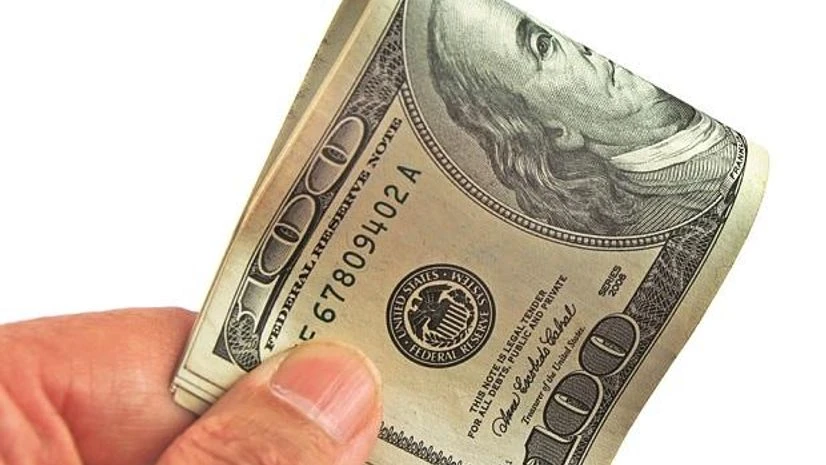The dollar held its overnight gains on Tuesday as concerns about unrest in China over COVID-19 restrictions dampened market sentiment, and as hawkish remarks from Federal Reserve officials gave the greenback an additional leg up.
Rising tensions in China over the country's stringent pandemic measures sent investors flocking to the safe-haven dollar, triggering a slide of more than 1% in the Aussie, kiwi and sterling overnight.
The euro, which surged to a five-month peak of $1.0497 overnight, later reversed those gains following a rebound in the U.S. dollar. It was last marginally lower at $1.0339.
European Central Bank President Christine Lagarde said overnight that euro zone inflation has not peaked and it risks turning out even higher than currently expected, hinting at a series of interest rate hikes ahead.
Flash euro zone inflation figures for November are due on Wednesday, with economists polled by Reuters expecting inflation to come in at 10.4% year-on-year. Ahead of that, inflation numbers from Spain and Germany are expected later on Tuesday.
"The central bank commentary that we've had this week, including from Lagarde, has got the market on guard for the risk that the ECB is going to raise rates by 75 basis points at its December meeting rather than 50 basis points, which had been a strong consensus up until the last few days," said Ray Attrill, head of FX strategy at National Australia Bank (NAB).
In China, police on Monday stopped and searched people at the sites of weekend protests in Shanghai and Beijing, after crowds there and in other Chinese cities demonstrated against the country's strict zero-COVID policy.
More From This Section
Protests have spread to at least a dozen cities around the world in a show of solidarity.
"I think the currency moves today will again be driven by views on China's COVID policy, as well as the broad risk sentiment," said Carol Kong, a currency strategist at Commonwealth Bank of Australia.
Market sentiment remained cautious in early Asia trade on Tuesday, with the Aussie nursing some of its deep 1.5% overnight loss. It was last 0.02% higher at $0.6654.
The New Zealand dollar gained 0.19% to $0.6172, while sterling edged 0.07% higher to $1.19665.
Against a basket of currencies, the U.S. dollar index was marginally lower by 0.1% at 106.50, after rising 0.5% overnight.
The greenback had extended gains after St. Louis Fed President James Bullard said overnight that the Fed needs to raise interest rates quite a bit further.
Similarly, New York Fed President John Williams said the U.S. central bank needs to press forward with rate rises but did not say how fast and how far it will need to boost short-term borrowing costs.
"The Fed rhetoric we've heard from some of the speakers in the last 24 hours is sending a relatively hawkish message, which is somewhat at odds with market pricing," said NAB's Attrill.
Comments from Fed Chair Jerome Powell on Wednesday will be watched for any new signals on further tightening, with key U.S. jobs data for November due on Friday. The U.S. central bank is widely expected to hike rates by an additional 50 basis points when it meets on Dec. 13-14.
Elsewhere, the Japanese yen last traded at 139.04 per dollar.
The offshore yuan reversed some of its losses in the previous session and was about 0.4% higher at 7.2136 per dollar.
Bitcoin extended overnight losses after cryptocurrency lender BlockFi filed for Chapter 11 bankruptcy protection, the latest crypto casualty to follow the collapse of the FTX exchange earlier this month.
The cryptocurrency was last down 0.3% at $16167. It fell 1.3% and recorded its worst session in over a week on Monday.
(Reporting by Harish Sridharan in Bengaluru; Editing by Edmund Klamann)
(Only the headline and picture of this report may have been reworked by the Business Standard staff; the rest of the content is auto-generated from a syndicated feed.)

)
